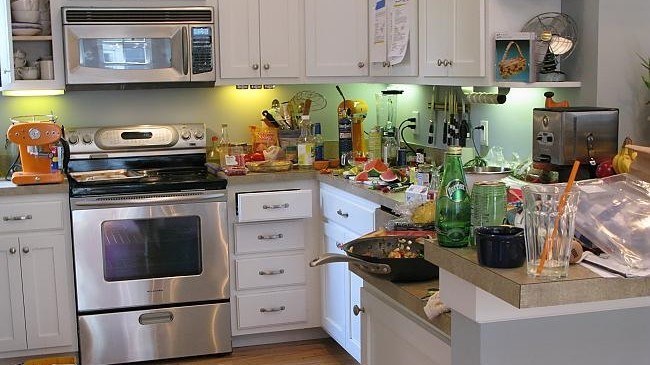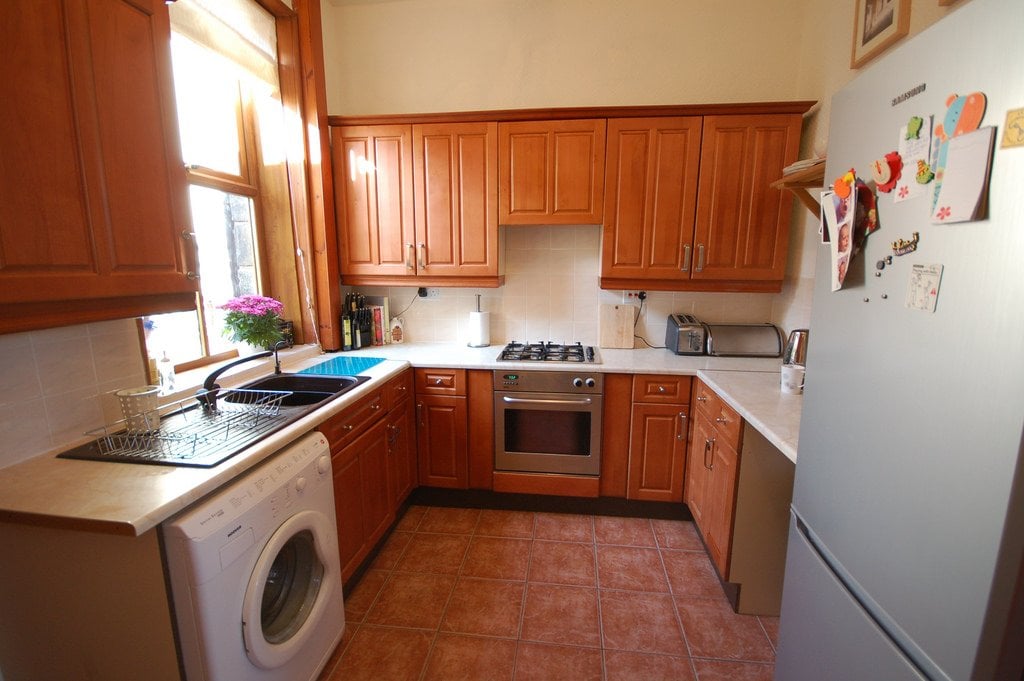Rising rates of people who are overweight or obese is a problem both in the United States and around the world. One of the reasons for this is that weight gain (and loss) is more than just about eating fewer calories or exercising more. Hormonal imbalances, medical conditions, and even the environment can affect the way weight is gained and lost, and a new study out of the University of New South Wales in Australia underlines just how important the environment can be to a healthy diet.
The Experiment
In order to understand a little more about the relationship between stress, eating habits and the environment, 100 college students were chosen to participate in this study. The students were divided into 2 groups, one being placed in a neat and tidy kitchen environment while the other was placed in a kitchen which was chaotic and cluttered. Once there, the students were encouraged to think and talk about times they had felt in control of a situation and times when they had felt stressed or out of control. Cookies, crackers, and carrots were provided to the students as part of the study.
The Results
The result of this study were starker than many of the researchers had expected: the students who were in a more chaotic frame of mind and in the cluttered kitchen ate more of the cookies than those who were situation in the neat and tidy kitchen. As a matter of fact, they ate more than twice as many calories as the other students.
The research suggested that eating in a chaotic environment is not recommended for those who are wanting to lose weight or to keep it off, as it encourages overeating and makes it easier to consume more calories than you realize, making it easy to put on weight and to derail attempts at weight loss.
Researcher’s noted that “Although a chaotic environment can create a vulnerability to making unhealthy food choices, one’s mindset against the environment can either trigger or buffer against that vulnerability.”
Reasons for The Students’ Behavior
The reasons for the behavior the students in the chaotic environment are not, perhaps, surprising, considered that other studies have found that the mental chaos which arises from being in a cluttered or chaotic environment can easily lead to unhealthy eating habits and weight gain. Part of this is because that when the body feels like it is under stress — as it can do in a surroundings that are chaotic — it produces chemicals and hormones that make it easier to gain weight. One of those chemicals is called betatropin, which blocks the activity of an enzyme that burns fat and cortisol, a hormone which rises in response to stress and which signals to the body that it needs to store fat, particularly in the abdominal area.
What to Learn from This Study
This might be a small study, but there are a lot of important lessons to take away from it. The most important lesson to learn is that chaos and clutter around the house really can affect the quality of your environment — which, in turn, can affect your eating habits. The trial mentioned above is not the only one to find this link: another study in 2008 found that people who struggled with organizing their homes or work spaces were 77% more likely to be overweight or obese. Thus, while it may seem difficult to do, decluttering your home and providing yourself an organized, neat environment to be in can actually help your efforts to lose weight.
The Importance of Decluttering
This study underlines the importance of decluttering one’s life in order to reduce stress (and cortisol levels) in order to make it easier to lose weight, and while decluttering won’t happen overnight, you can make a difference if you are persistent and take care of the problem over time.
Tips for a good clean-out include:
- Making sure you have the materials (such as storage bins) ready ahead of time
- Choosing one area at a time to work on for decluttering
- Buying the products (such as hooks for car keys or filing cabinets for papers) that are tailored for your particular needs.
- Be sure to sort papers into “like” piles to make it easier to organize and file them.
In short, decluttering might feel like a lot of work — and even seem overwhelming at times — but as studies like this one show, the short— and long-term benefits you will derive from this activity more than make up for the effort you will put into it.














































